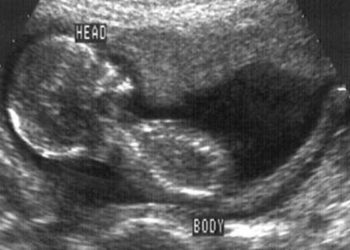Teach-back method effective to improve postpartum maternal-infant health
1. In a cohort of portpartum mothers with limited maternal health literacy, the teach-back teaching method was associated with increased health literacy
2. Improved maternal health literacy was associated with higher uptake of postpartum checkups and vaccinations, and improved outcomes related to mastitis, constipation, weight, and uterus and diaper dermatitis
Evidence Rating Level: 1 (Very Good)
Study Rundown: The post-partum period is a critical time, as it has impacts on mother and child well-being, and is a time at which many pregnancy and birth related complications can occur. Previous studies have suggested that many birth and postpartum health outcomes are influenced by maternal health literacy (MHL), referring to the ability of women to access, understand and use information to maintain their own health and health of their children. Those with a lower level of MHL may have more challenges in gaining and applying information which can lead to negative health outcomes during the post-partum period. Several teaching strategies can be used to improve health literacy. This study examined the use of the teach-back method, in which after a health care provider explains information, the patient restates it in their own words with feedback from the provider. In this randomized controlled trial, both study groups had no significant difference in terms of baseline MHL, however those who received the teach-back method intervention had significantly higher levels of MHL and better postpartum behaviors in terms of exclusive breastfeeding. The teach-back group also had higher uptake of 42-day postpartum checkups and vaccinations, and better health outcomes including: acute mastitis, postpartum constipation, weight, incidence of subinvolution of the uterus and diaper dermatitis. This study shows the importance of MHL and that methods such as the teach-back method can have a beneficial impact on both maternal and child well-being.
Click here to read the study in BMC Pregnancy and Childbirth
Relevant Reading: Understanding and Meeting the Needs of Women in the Postpartum period: The Perinatal Maternal Health Promotion Model
In-Depth [randomized controlled trial]: This randomized controlled trial included 298 women with Limited Maternal Health Literacy (LMHL), as per scoring 27 or less points in baseline measurements of the Perinatal Maternal Health Literacy Scale (PMHLS). Women were assigned to either control or teach-back group with the flip of a coin at random. Women from the teach-back group and control group received three education sessions, each discussing various health issues. Both groups shared the same educational content with the exception that the teach-back group had to restate what they had learned in their own words, with any corrections by the educators if needed. For each education session, women may have been grouped with different peers and different educators to reduce peer and educator bias. Maternal Health Literacy (MHL) was measured at baseline and at 42 days postpartum using the PMHLS. Postpartum health behaviors and maternal-infant health outcomes were also measured. Following the education sessions, both groups had significantly higher PMHLS scores (20.5 to 26.5 for the teach-back group [z = − 9.820, p < 0.001], 20 to 21 for the control group [z = − 7.073, p < 0.001]). Half of the women in the teach-back group had scores higher than 27 at 42 days postpartum, a significantly higher percentage than the control group (64 women versus 11, x2 = 53.971, p < 0.001). The teach-back group had significantly better postpartum behaviors in terms of exclusive breastfeeding and 42-day postpartum checkup. Maternal infant health outcomes including subinvolution of the uterus, acute mastitis, postpartum constipation, overweight and diaper dermatitis were significantly lower in the teach-back group. Limitations to this study include the fact that participants could not be blinded and the population was limited to a tertiary hospital in a moderately developed region, making it difficult to generalize results. This study highlights the importance of MHL on maternal and infant outcomes and that effective teaching methods are beneficial. Future studies are needed to determine cost-effectiveness of these teaching methods, long term impacts, and patient experience.
Image: PD
©2023 2 Minute Medicine, Inc. All rights reserved. No works may be reproduced without expressed written consent from 2 Minute Medicine, Inc. Inquire about licensing here. No article should be construed as medical advice and is not intended as such by the authors or by 2 Minute Medicine, Inc.









